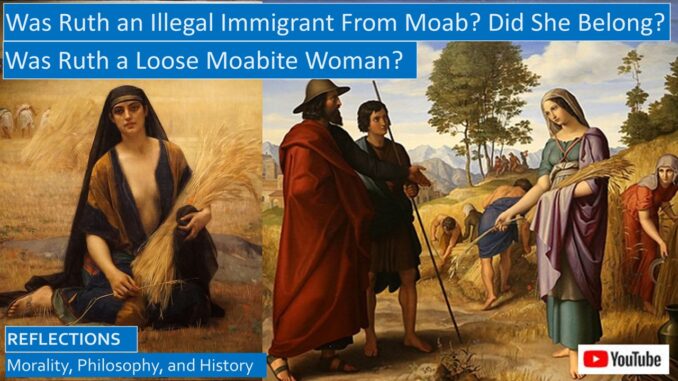
Why is the Book of Ruth one of the most beloved books of the Old Testament?
How did Ruth, a Moabite woman, become the grandmother of King David, when the Jews were forbidden to marry Moabite women?
Why is Ruth favorably compared with Tamar, another bad girl of the Old Testament, who is also an ancestor of King David, and also of Jesus himself?
Is it fair to compare the plight of the Moabite woman Ruth to the plight of modern illegal aliens?
RUTH COMPARED TO TODAY’S ILLEGAL IMMIGRANTS
In ancient Israel and Judah, marriages between Jews and Moabites were forbidden. In particular, many ancient Jews saw Moabite women as loose women. But yet, in the Old Testament, the marriage between the upright Jew Boaz and the Moabite woman Ruth is celebrated, placing them in the lineage of King David, and of Jesus. Not only that, the romance between the wealthy Boaz of Bethlehem and the destitute Ruth of Moab is potentially scandalous.
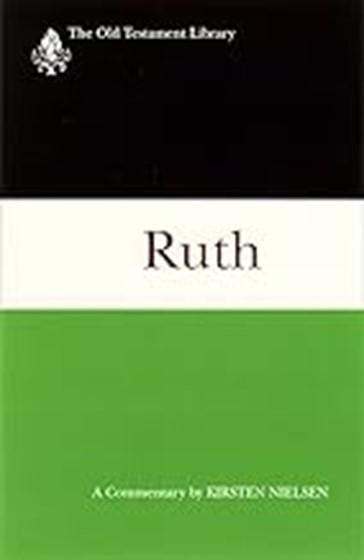
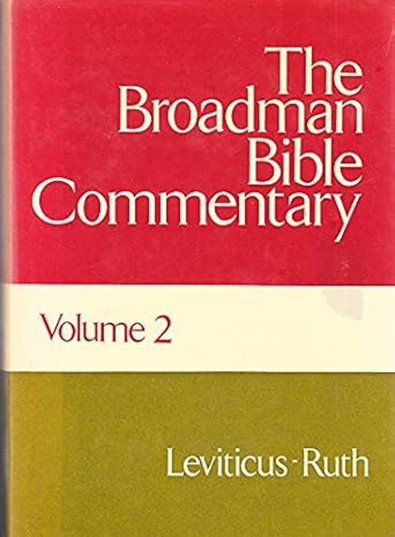
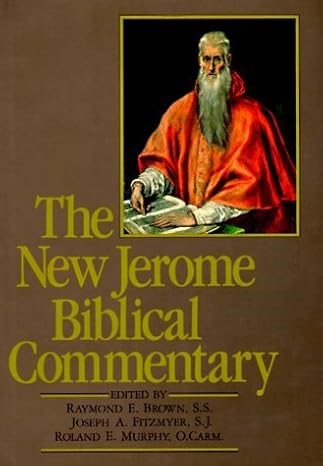
The Kingdom of Moab was East of the Dead Sea, while Judah was West of the Dead Sea. Bethlehem was just south of Jerusalem in Judah, while the later Kingdom of Israel was located to the North. Inhabitants of both Israel and Judah are referred to as Israelites. In Genesis, the Moabites and Ammonites are the descendants of the incestuous coupling of Lot and his daughters after the fall of Sodom and Gomorrah. Relations between Judah and Moab fluctuated, in the Book of Judges a Benjaminite assassinated the Moabite King Eglon, but evidently in the Book of Ruth, there was relative peace between them. Moab may have been absorbed into Israel after the reign of King David.[1]
Was Ruth an Old Testament version of an illegal alien? Marriages between Jews and Moabites were definitely illegal under Jewish law, and Ruth was seen as a sojourner, which is the Biblical term for immigrant, or alien. Ancient Jews were just as suspicious of Moabites as many Americans are suspicious of Mexicans today. Ruth emigrates to Judah because of economic hardship, just as hardship drives many Mexicans to seek to enter the United States.
Is the term illegal alien a misnomer? Are illegal aliens criminals because they are doing illegal things? We can all agree that someone who robs a bank or steals a car or shoots or beats his neighbor is a criminal, but is someone who is fleeing gangs who threaten their lives a criminal? Is someone who flees grinding poverty to take their chances swimming the Rio Grande River truly a criminal?
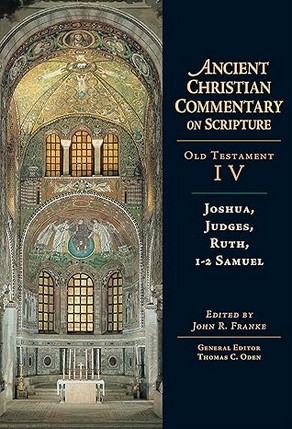
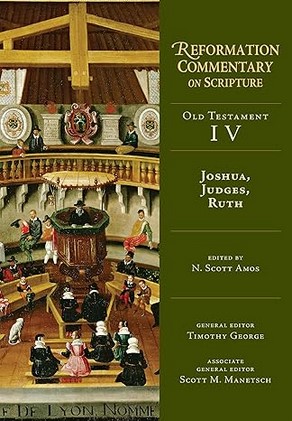
Do illegal aliens commit more threatening crimes than American citizens? Since Trump suggested that Mexican immigrants are “bringing drugs, bringing crime, are rapists, though some may be good people,”[2] many mainstream media have reflected on this issue, concluding that, on average, illegal aliens commit far fewer crimes than American citizens. However, some right-wingnut media outlets conclude the opposite.
YOUTUBE Video, to be released during November 2025
We are pondering both the historical-critical commentaries and the ancient Church Father Patristic commentaries in our study of the Book of Ruth. Historical criticism investigates ancient texts to understand “the world behind the text,” using linguistic and archeological aids to discover, as much as possible, the original meaning of the text in its original cultural context. In contrast, the Church Fathers seek the spiritual and moral lessons of the Bible, and how Old Testament stories prefigure the coming of Christ. We find the historical-critical commentaries of Ruth particularly interesting. We agree with Cardinal Ratzinger, the future Pope Benedict, that Christians can consult multiple Biblical Commentaries, though ancient patristic commentaries should be favored over modern commentaries.
Vatican Decree on Biblical Interpretation, Cardinal Ratzinger and the 1994 Pontifical Biblical Commission
http://www.seekingvirtueandwisdom.com/interpretation-of-the-bible-in-the-church/
https://youtu.be/6jwUNScn_sM
In most compilations of the Old Testament, Ruth is placed after the Book of Judges, and the Book of Ruth says these are events occurring during the time of the Judges. Many of the so-called Hard Sayings of the Old Testament occur in the Book of Judges, but many are easily interpreted in light of the theme of Judges, which states in two verses that “every man in Israel did what was right in his own eyes.”[3]
In the Book of Ruth, she is compared to another controversial woman of the Old Testament, Tamar, who bore a child with Judah through deceit. Tamar first married Judah’s eldest son Ur, but he was killed by God for his wickedness. She then married his brother Onan, but he was killed by God for spitefully refusing to fulfil his levirate duties. She was then sent back to her father’s house until Judah’s youngest son Shelah reached a marrying age, but this never happened.
Judah likely thought she would jinx his younger son’s life, so he never sent for her. When Tamar learned Judah would be shearing sheep in Timnath, she disguised herself as a prostitute, wearing a mask that covered her face, seducing Judah, accepting his staff, seal, and cord a surety until he could pay her. When she was later accused of profligacy when her pregnancy was discovered, she showed Judah his staff, seal, and cord. Judah responded, “She is more righteous than I, since I did not give her to my son Shelah.” She bore him twins, and one of them, Perez, is in the lineage of King David.[4]
YOUTUBE Video, to be released during November 2025
NAOMI FACES DESTITUTION IN THE LAND OF MOAB
The story in the Book of Ruth begins when famine struck the land of Judah, compelling Elimelech and his wife Naomi to sojourn in Moab. Since Elimelech’s name means My God is King, many commentators do not fault him for moving to Moab. After all, David himself sought refuge in Moab when he fled from the wrath of King Saul. We are later informed that the family of Elimelech has inherited land near Bethlehem, perhaps this tract of land was too small to provide a living during the famine. Their family remains in Moab for many years, where Naomi gives birth to two sons who later marry Moabite wives, Ruth and Orpah.
The Jewish Rabbi Rashi speculates that Elimelech “was very wealthy, and the leader of the generation. He left the Land of Israel for regions outside the Land because of stinginess, for he begrudged the poor who came to press him; therefore he was punished.”
Rashi’s interpretation is a valuable moral lesson, but if Elimelech was very wealthy in Judah, that meant he had vast lands and livestock in Judah. Why would he move to Moab amidst a famine?
Not only does the Book of Deuteronomy forbid Jews from intermarrying with Moabites, but when this law was discovered and read in the Book of Nehemiah, the Jews put away their Moabite spouses. The Baptist Broadman commentary speculates that perhaps this law did not apply at that time. Or perhaps the Book of Ruth is a benign example of every man doing what was right in his eyes, as was the custom in the days of the Judges.
Were the tragedies and destitution confronting Naomi a judgment from God? After Naomi’s husband Elimelech dies, her two sons supported her. But then she faced destitution after her two sons, Mahlon and Chilion, whose names mean Sickly and Wasting Away, also passed away, which meant that their wives, who are Naomi’s daughters-in-law, became young widows as well.[5]
The New Jerome historical-critical commentary bluntly states that the Book of Ruth is not historical, that it is just a story. Perhaps this is because every main character has a coined name.[6] What is gained from an attitude that every detail that cannot be proven must be false? Why disavow that Ruth is in the lineage of David, as Jewish tradition so steadfastly insists?
In contrast, the Westminster historical-critical commentary suggests the facts of David’s lineage were so well-known that they could not be denied, that they could only be explained. This common-sense exegetical principle suggests that self-critical or embarrassing assertions in Scripture are likely historically genuine. [7]
What we can speculate is that the Book of Ruth is not a unique story, that there were many instances of intermarriage between Jews and Moabites, and there were many Ruths who were eagerly adopted into the Jewish nation. Indeed, the nation of Israel was founded on those who believed in the Jewish God when they were expelled from Egypt by Pharoah, regardless of whether they were born Jews.
NAOMI PLANS HER RETURN TO JUDAH
Naomi realizes she has no choice, that she must return to the Bethlehem that she left decades ago, hoping that her kin would show mercy towards her, as there was no longer famine in the land of Judah. Naomi wonders whether her tribulations are punishment for their permitting their departed sons to marry Moabite women.
At first, Ruth and Orpah want to accompany her, but Naomi strongly encourages them to move back into the home of the father of their departed husbands. According to the Middle Eastern tradition of levirate marriages, unwed brothers of the deceased were obligated to marry their young widows, so they would have someone to support them. But Naomi has long lost her flower of youth, nobody desires Naomi.
Orpah reluctantly agrees with this suggestion, kissing Naomi goodbye, but Ruth declares her unconditional loyalty not only to Naomi, but also to her family, her nation, and her God:
Ruth clung to Naomi, saying: “Entreat me not to leave you or to return from following you: for where you go, I will go; and where you lodge, I will lodge; your people shall be my people, and your God my God; where you die, I will die; and there will I be buried. May the Lord do so to me and more also if even death parts me from you.”[8]
Characteristically, Ruth’s name means “companionship.” Rabbinic tradition suggests that Ruth’s name means that “she has satiated Naomi with her kindness,” while Orpah’s name means that she is turning her back on her mother-in-law. [9] Ruth has resolved to accompany Naomi rather than return to her father and family in Moab.
Naomi merely relents, allowing Ruth to accompany her. Naomi does not return Ruth’s affection, or even acknowledge it. These Old Testament accounts are always terse, leaving the reader to speculate on the motives and intentions of the characters. Later, Ruth is described as someone with great character, which means she cannot bear the thought of leaving Naomi in her hour of need and destitution. Most of us enter into relationships for what we can receive rather than what we can give, and you cannot fault Orpah for returning to her father’s house, for one day someone may marry her. But Ruth only thinks of Naomi’s future, and not her own, Ruth cannot abandon her.
The Church Father Ambrose teaches us: “Ruth, who exceeded the limits of the law and entered the church and was made an Israelite and deserved to be counted among the honored figures in the Lord’s genealogy, chosen for kinship of mind, not of body, is a great example for us, because she prefigures all of us who were gathered from the nations for the purpose of joining the church of the Lord.”
Several Church Fathers were impressed by Ruth’s loyalty to both Naomi and the God of Israel. Isidore of Seville teaches us: “Ruth is a type of the church because she is a stranger from the Gentile people who renounced her native land and all things belonging to it. She made her way to the land of Israel.”
Jerome teaches us: “Ruth, a foreigner, did not leave Naomi’s side. See how much merit there is in standing by the deserted in solace. From her seed, Christ is born.”[10]
NAOMI AND RUTH ARRIVE WHEN BARLEY IS HARVESTED IN BETHLEHEM
When Ruth and Naomi arrive in Bethlehem during the barley harvest, after a trip of about fifty miles, Naomi is pessimistic. In Hebrew, Naomi means My Joy or sweetness, but she feels neither joyful nor sweet. As the Book of Ruth puts it: “When they came to Bethlehem, the whole town was stirred because of them; and the women said, “Is this Naomi?” She said to them, “Do not call me Naomi, call me Mara, for the Almighty has dealt very bitterly with me. I went away full, and the Lord has brought me back empty. Why call me Naomi, when the Lord has afflicted me and the Almighty has brought calamity upon me?”
This is a rare case when the Old Testament acknowledges the meaning of the names of the characters.
Upon their arrival, it is Ruth who takes the initiative, gleaning in the fields of Boaz, wealthy relative of Elimelech. Boaz means strength in Hebrew, he is the strong man who will later not only defend the interests of Ruth, but also Naomi, her mother-in-law. Ruth gleans from morning to night, “without resting for a moment.” Her outer beauty and her striving to look after Naomi, her mother-in-law, catches the eye of Boaz.
The Broadman Commentary states that “gleaning at harvest time, or the gathering of grain or fruit overlooked or dropped by the harvesters, was an ancient custom established by Jewish law. This was a civil institution for the benefit of the poor, especially widows, orphans, and sojourners,” which is another name for immigrants.
In the Book of Ruth, Boaz never speaks to Naomi, but here he speaks to Ruth, telling her to glean only in his fields, that he will protect her lest the young men molest her. Ruth fell on her face, asking Boaz, “Why have I found favor in your eyes, that you should take notice of me, when I am a foreigner?”
Boaz answered her, “All that you have done for your mother-in-law since the death of your husband has been fully told to me: how you left your father and mother and your native land and came to a people that you did not know before. May the Lord recompense you for what you have done, and a full reward be given you by the Lord, the God of Israel, under whose wings you have come to take refuge!”
Ruth responded, “You are most gracious to me, my lord, for you have comforted me and spoken kindly to your maidservant, though I am not one of your maidservants.”[11]
NAOMI AND RUTH PLOT A BETROTHAL
Naomi was overjoyed when Ruth not only returned that night with a full bushel of barley, but also after she told her how Naomi’s kinsman, Boaz, had taken a special interest in her welfare, telling her to glean only in his fields, warning the young men not to molest her. Not only that, Boaz also had invited her to enjoy the midday meal with his reapers and maidservants.
At the end of the harvest, Naomi was eager to ensure not only Ruth’s future, but her own as well. Naomi said to Ruth, “My daughter, should I not seek a home for you, that it may be well with you? Now is not Boaz our kinsman, with whose maidens you were? See, he is winnowing barley tonight at the threshing floor. Wash therefore and anoint yourself, and put on your best clothes and go down to the threshing floor; but do not make yourself known to the man until he has finished eating and drinking. But when he lies down, observe the place where he lies; then, go and uncover his feet and lie down; and he will tell you what to do.” And Ruth replied, “All that you say I will do.”
As the Broadman Commentary observes that this “required sheer audacity for a woman of good character,” which applies to both Naomi and Ruth. But notice, she only advises Ruth to uncover his feet.
What does Ruth actually uncover? In the Westminster Commentary translation, Ruth uncovers herself, but all of the dozens of English translations listed in the Bible Gateway website instead say that Ruth uncovered Boaz’s feet. Some historical-critical commentators wonder whether Ruth uncovered two feet or three.
Naomi is clearly desperate. What is the fate of an aging widow whose sons have passed away? Who will take care of her in her old age? Who will protect her? We are reminded of the stories of the nomadic American Indians, where the other squaws took all that a widow possessed, leaving her to die in the snow, for the tribe following the buffalo could not carry widows who could not fend for themselves.
Here the story of Ruth and Naomi reminds us of the desperation of illegal immigrants today, who do not know where they will get their next meal, who do not feel safe in their homes, who must do what they can to survive in an inhospitable world.
Ruth indeed does as Naomi suggests. That night Boaz eats and drinks, as the men celebrate the end of the harvest. Unnoticed, Ruth notices where Boaz sleeps on the threshing floor.
The Scriptures continue:
“At midnight Boaz was startled, and turned over, and behold, a woman lay at his feet! He said, “Who are you?” And she answered, “I am Ruth, your maidservant; spread your skirt over your maidservant, for you are next of kin.” And he said, “May you be blessed by the Lord, my daughter; you have made this last kindness greater than the first, in that you have not gone after young men, whether poor or rich. And now, my daughter, do not fear, I will do for you all that you ask, for all my fellow townsmen know that you are a woman of worth.”
Then Boaz tells Ruth that there is someone whose levirate claim is stronger than his, that the next day he will consult with him and the elders as to whether he can take Ruth into his household. Boaz tells Ruth not to leave until the morning. In the morning, he gives six measures of barley for Ruth to bring home to Naomi.[12]
What happened that night between Boaz and Ruth as they both lay on the threshing floor? All of the classical Jewish and Christian commentators agree: Nothing happened that night. Of course they say this, young men always want to feign commitment to gain affection, so you don’t want preachers to give them permission. Naomi, counting on the virtue of Boaz, counsels Ruth to do as he asks, and only if he asks.
The medieval Rabbi Rashi seeks a spiritual message in Naomi’s instructions to Ruth. In the Jewish translation:
“Is not Boaz our kinsman, with whose maidens you were? Behold, he is winnowing on the threshing floor the barley tonight.”
Why was he there? Rashi explains: “Because the generation was unrestrained in theft and robbery; and he would sleep in his threshing floor to guard (the barley on) his threshing floor.”
This is Rashi’s commentary on Naomi’s instructions to Ruth:
“And you shall bathe,” RASHI: removing “contamination of idolatry,”
“and anoint yourself,” RASHI: with “the commandments,”
“and put on your clothes,” RASHI: your “Sabbath garments,”
“and go down to the threshing floor,” RASHI: and “my merit will go down with you.”
“Do not make yourself known to the man,” RASHI: “to Boaz,”
“until he has finished eating and drinking.”[13]
The Church Fathers likewise prefer a spiritual interpretation. The Church Father Theodoret of Cyr teaches us: “Boaz teaches us about virtue. For he not only liberally shares his grain with Ruth but also consoles her with words.”
“Naomi suggests to Ruth that she sleep at Boaz’s feet,” but the words of the narrative suggests otherwise. “Rather, she trusts the man’s temperance and judgment. Moreover, the actions corroborate the words.”
Speaking to Ruth, Boaz proclaims: “You might have gone to those who are young and blooming, with only the intent of enjoying voluptuousness, but you went to the man who stands in place of a father to you.” Twice indeed, he calls her daughter.
Incomplete Work on Matthew: “Ruth feared neither that Boaz would perhaps spurn her, as a just man might spurn a lascivious woman, nor that he might deceive her and, worse, despise a deceived woman, as many men might have done. But, obeying her mother-in-law’s plans, she confidently believed that God would prosper her action, knowing her conscience, because lust did not push her to it but rather religion was her encouragement.”
The Incomplete Work on Matthew continues: “What is praised in Boaz? Humility and chastity, because he did not touch her as a lascivious man would touch a girl or abhor her as a chaste man would a lascivious girl. As soon as he had heard her speak of the law, he ascribed her actions to religion. Nor did he despise her as a rich man would a pauper, nor was he in awe of her, as a mature man might be of a young woman.”[14]
Rashi and the Church Fathers simply seek to interpret Scripture in the best light possible, just as we should see our neighbors in the best light possible, protecting their reputations whenever we can.
Do Not Slander, Church Fathers, Preachers, and Catholic Catechism, CCC 2464
http://www.seekingvirtueandwisdom.com/do-not-slander-church-fathers-and-preachers-and-catholic-catechism-introduction-ccc-2464/
https://youtu.be/CZADtl6Yz74
Martin Luther, Do Not Slander, Lutheran Catechisms
https://seekingvirtueandwisdom.com/luther-on-do-not-bear-false-witness-against-your-neighbor/
https://youtu.be/jM2FrvyKsbk
Do Not SLANDER: Teachings from the Medieval Rabbis, Rashi, Rambam, Ramban, the Torah and Talmud
http://www.seekingvirtueandwisdom.com/the-decalogue-in-the-torah-blog-6-do-not-bear-false-witness-against-your-neighbor/
https://youtu.be/KvKOCyREmQA
Do Not Slander: Dr Laura and Her Rabbi Stewart Vogel on Ten Commandments
http://www.seekingvirtueandwisdom.com/dr-laura-and-her-rabbi-on-not-bearing-false-witness-against-your-neighbor/
https://youtu.be/tlTymS2Bxxo
St Augustine summarized this principle: We should always interpret Scripture in a way that increases our Love of God and our love for our neighbor. When a literal reading of Scripture appears to violate this two-fold love of God and neighbor, then we should interpret the verse allegorically. Rashi and the Church Fathers interpret Naomi’s instructions to Ruth allegorically.
St Augustine: On Christian Teaching, aka On Christian Doctrine, How To Read Scripture
http://www.seekingvirtueandwisdom.com/st-augustine-on-christian-teaching-how-to-read-scripture/
https://youtu.be/uQCnAJMPoos
But in this instance, we can safely also interpret these instructions as literal, as they demonstrate how a carnal romantic attraction can lead to a truly loving relationship that better enables both spouses to love their other neighbors.
But it really does not matter whether anything happened on the threshing floor that night. Relationships are like sausage; it is best not to inquire too deeply into how they are made. We should be reluctant to condemn affection, as the only enduring moral questions are whether the man will be a good father to their children, and whether each spouse will be kind and loving to each other. When I was participating in the divorce support ministry, we retitled our group the Divorce and Separated Support Group. The past is gone, the current focus should be on improving the relationship when children are involved, although complete reconciliation is rare.
Divorce Care is a non-denominational divorce care ministry with many local Protestant and Catholic support groups. Catholics Surviving Divorce is a similar ministry, except that they also discuss the Catholic annulment process.
https://ascensionpress.com/collections/surviving-divorce
BOAZ AND RUTH MARRY, AND NAOMI IS A GRANDMOTHER
After Ruth returns with six measures of barley and the good news, Naomi accurately predicts that Boaz will quickly settle the matter.
Most unimportant people in the Old Testament are not given a name, and so it is with the man whose levirate claim is greater than his, who is known in the KJV and in the Jewish translation as So-and-So. At first, Boaz asks So-and-So if he intends to press his claim for the inheritance of Elimelech’s meager plot of land. When he says he does, Boaz strongly suggests that if he buys the land, then he must also buy Ruth, and provide for both her and Naomi. We can just imagine So-and-So saying to Boaz, You lucky dog, of course you can have Ruth’s hand, not wanting to start a feud.
Why couldn’t Naomi claim her right to her deceased husband’s small plot of land? This question is not answered, perhaps women and widows did not have the legal standing to stand up for their legal rights.
The exact legal transaction is confusing, and commentators ancient and modern struggle to explain it. What is clear is that nothing in the Torah, or Jewish law, required Boaz to marry Ruth to fulfill a levirate obligation, since she is a Moabite. Indeed, Boaz risks his reputation by asking the community to accept his decision to marry Ruth, since she is a Moabite woman. But Boaz’s actions comply totally with the spirit and purpose of the levirate traditions, that widows, especially virtuous widows, especially virtuous widows like Ruth, should be sheltered by the community.
In the conclusion of the Book of Ruth, Boaz took Ruth for his wife; and the Lord blessed them, and she bore him a son. Then the women said to Naomi, “Blessed be the Lord, who has not left you this day without next of kin; and may his name be renowned in Israel! He shall be to you a restorer of life and a nourisher of your old age; for your daughter-in-law who loves you, who is more to you than seven sons, has borne him.” Then Naomi took the child and laid him in her bosom, and became his nurse. And the women of the neighborhood gave him a name, saying, “A son has been born to Naomi.” They named him Obed; he was the father of Jesse, the father of David.[15] Obed means servant of God in Hebrew.[16]
The Incomplete Work on Matthew teaches us: “Boaz, an old man, did not take a wife for himself but for God; not on account of his corporeal passions but on account of the justice of the law, to revive the seed of his kinsman, not serving love so much as religion. He was old in age but youthful in faith.”
John Chrysostom teaches us: “Ruth was an outsider who had fallen into extreme penury, but Boaz, seeing her, did not despise her on account of her poverty, nor was he horrified on account of her impiety; even as Christ received the church, who was both a stranger and laboring, in need of great good things.”
Theophylact teaches us: “Ruth was a foreigner, but nevertheless she was married to Boaz. So, too, the church is from among the Gentiles.”[17]
The same chorus of the women of Bethlehem who had first asked: Is this Naomi? when she first returned with her Moabite daughter-in-law, Ruth, now celebrates both of them as an integral part of the community, after Boaz took her to be his wife. When she was a destitute sojourner, Ruth mattered little, until she married into the wealthy household of Boaz. The last verses of the Book of Ruth are a genealogy that begins with Tamar giving birth to Perez, followed many generations later by Ruth, concluding with Ruth’s grandson, King David.
DISCUSSING THE SOURCES
We found that the two historical-critical commentaries, the Westminster commentary and the New Jerome commentary, were particularly interesting, in part because the cultural and historical context tells us so much about the Book of Ruth. The New Jerome Biblical Commentary was less useful.
Likewise, we found that the more traditional Baptist Broadman Commentary was uniquely informative on the Book of Ruth. We always consult the 1970 edition of this commentary in our Biblical studies, but often do not include it in our sources. We purchased this series from a used bookstore.
We always find the Ancient Christian Commentary on Scripture, which includes many Eastern and Western Church Fathers from the first millennium of the Church, particularly interesting. We were surprised that so few Church Fathers commented on the Book of Ruth.
In contrast, the Reformation Commentary included extensive commentaries by multiple Reformed Theologians, they were too voluminous to include. We plan another video quoting from the Reformed commentaries later in 2024.
YOUTUBE
We also reflected on the influential medieval Rabbi Rashi’s commentary on the Book of Ruth, available at the Chabad website.
https://www.chabad.org/library/bible_cdo/aid/16453/showrashi/true/jewish/Chapter-1.htm
We have also previously reflected on the Book of Ruth when we compared the reflections by St Augustine and the Stoic Philosopher Musonius Rufus on Concupiscence, Love or Lust?
Musonius Rufus on Concupiscence and Controlling the Appetites
http://www.seekingvirtueandwisdom.com/musonius-rufus-on-concupiscence-and-controlling-the-appetites/
St Augustine on Concupiscence, Blogs 1, 2 & 3
https://seekingvirtueandwisdom.com/st-augustine-on-concupiscence-blog-1/
https://seekingvirtueandwisdom.com/st-augustine-on-concupiscence-blog-2/
https://seekingvirtueandwisdom.com/st-augustine-on-concupiscence-blog-3-final-reflections/
St Augustine, Stoic Musonius Rufus, & Ruth on Concupiscence: Love or Lust? Controlling the Passions
https://youtu.be/-wv6bVeG74A
[1] https://en.wikipedia.org/wiki/Moab
[2] https://en.wikipedia.org/wiki/Racial_views_of_Donald_Trump
[3] https://www.biblegateway.com/passage/?search=judges%2017%3A6&version=RSVCE and the final verse in the chapter, following the members of the tribe of Benjamite’s’ mass rape and capture of wives: https://www.biblegateway.com/passage/?search=judges%2021%3A25&version=RSVCE
See also Kirsten Nielsen, Ruth, The Old Testament Library (Louisville, KY: Westminster John Knox Press, 1997), p. 40.
One article that expounds on these verses: https://decisionmagazine.com/john-macarthur-right-in-their-own-eyes/
[4] https://en.wikipedia.org/wiki/Tamar_(Genesis) and Genesis 38: https://www.biblegateway.com/passage/?search=genesis%2038&version=RSVCE
[5] J Hardee Kennedy, Ruth, Broadman Baptist Bible Commentary, Volume 2 (Nashville, TN: Broadman Press, 1970), p. 467, and Kirsten Nielsen, Ruth, The Old Westminster Testament Library, p. 25.
Biblical prohibitions against Jews marrying Moabites: https://www.biblegateway.com/passage/?search=deuteronomy%2023%3A3-6&version=RSVCE and https://www.biblegateway.com/passage/?search=nehemiah%2013%3A1-3&version=RSVCE
Rashi quote: https://www.chabad.org/library/bible_cdo/aid/16453/showrashi/true#lt=primary
[6] Raymond Brown and others, Ruth, The New Jerome Biblical Commentary (Upper Saddle River, NJ: Prentice Hall, 1990. 1968), p. 553.
[7] Kirsten Nielsen, Ruth, The Old Westminster Testament Library, p. 24.
[8] J Hardee Kennedy, Ruth, Broadman Baptist Bible Commentary, Volume 2, pp. 468-470.
Ruth’s famous declaration of loyalty to Naomi: https://www.biblegateway.com/passage/?search=ruth%201%3A16-17&version=RSVCE
Levirate marriage in Deuteronomy: https://www.biblegateway.com/passage/?search=deuteronomy%2025%3A5-10&version=RSVCE
[9] https://weekly.israelbiblecenter.com/ruth-meaning-hebrew-names includes an interesting discussion of the names in the Book of Ruth, and Kirsten Nielsen, Ruth, The Old Westminster Testament Library, p. 44.
[10] Ruth, Ancient Christian Commentary on Scripture, Old Testament Volume IV (Downers Grove, IL: Intervarsity Press, 2005), pp. 181-184.
[11] J Hardee Kennedy, Ruth, Broadman Baptist Bible Commentary, Volume 2, pp. 469-472.
Naomi’s proclamation: https://www.biblegateway.com/passage/?search=ruth%201%3A19-21&version=RSVCE
Meaning of Boaz: https://www.abarim-publications.com/Meaning/Boaz.html
Discussion of Boaz and Ruth: https://www.biblegateway.com/passage/?search=ruth%202%3A10-13&version=RSVCE
[12] J Hardee Kennedy, Ruth, Broadman Baptist Bible Commentary, Volume 2, pp. 471-476.
Naomi’s instructions: https://www.biblegateway.com/passage/?search=ruth%203%3A1-5&version=RSVCE
Ruth surprises Boaz: https://www.biblegateway.com/passage/?search=ruth%203%3A8-11&version=RSVCE
[13] https://www.chabad.org/library/bible_cdo/aid/16455/jewish/Chapter-3.htm/showrashi/true
[14] Ruth, Ancient Christian Commentary on Scripture, Old Testament Volume IV, pp. 185-191.
[15] J Hardee Kennedy, Ruth, Broadman Baptist Bible Commentary, Volume 2, pp. 477-480.
Conclusion of Book of Ruth: https://www.biblegateway.com/passage/?search=ruth%204%3A13-17&version=RSVCE
[16] https://www.abarim-publications.com/Meaning/Obed.html
[17] Ruth, Ancient Christian Commentary on Scripture, Old Testament Volume IV, pp. 187-192.


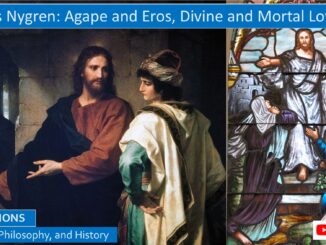
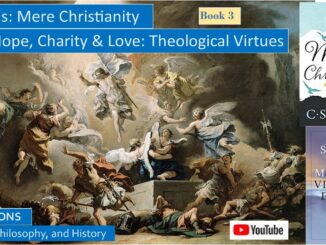
Be the first to comment